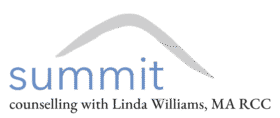Many people assume that once you’re grown, your parent loses their power to hurt you. But if you grew up with a mother or father who struggles with Borderline Personality Disorder (BPD) or Narcissistic Personality Disorder (NPD)—or even strong traits of these conditions—you may know this isn’t true.
Some parents continue to yell, accuse, shame, manipulate, or even physically intimidate their children well into adulthood. They may call at all hours, lash out over small things, deny your reality, or turn family members against you. The cycle of fear and guilt that began in childhood can feel inescapable—even decades later.
It is painful to admit, but naming this truth matters: your parent’s behavior is not your fault.
Why It Still Hurts
Old wounds get reopened. The same dynamics that shaped your childhood often continue into adulthood. Even if you’re strong in other areas of life, your parent can trigger feelings of shame, fear, and powerlessness.
Attachment runs deep. We all long for a safe, loving parent, no matter our age. When that longing collides with repeated mistreatment, it creates confusion and grief.
The cycle repeats. Borderline and narcissistic parents often project their pain onto their children. That projection—whether through rage, blame, or manipulation—can keep you trapped in old roles.
Protecting Your Wellbeing
You cannot control your parent’s behavior, but you can take steps to protect yourself:
Set Boundaries: Decide what you will and will not tolerate—whether that means limiting visits, ending phone calls if yelling starts, or creating physical distance.
Expect Pushback: Parents with borderline or narcissistic traits often resist boundaries. Their reaction does not mean your boundary is wrong.
Seek Support: Therapy, support groups, or trusted friends can help you validate your experience and stay steady.
Allow Grief: It is natural to mourn the parent you wished you had, while protecting yourself from the one you do have.
Consider No Contact: For some, low contact or no contact is the healthiest choice. This does not mean you are cruel or ungrateful—it means you are choosing peace and safety over ongoing chaos and pain.
A Path Forward
If your parent still hurts you as an adult, it doesn’t mean you are weak. It means the wound runs deep. Healing means learning to trust yourself, care for your nervous system, and create safety that does not depend on someone who cannot provide it.
Sometimes that means firm boundaries. Sometimes that means distance. And sometimes, it means going no contact.
Protecting yourself is not abandonment—it is self-preservation. And it is the beginning of breaking the cycle of intergenerational pain—whether it came from a borderline, narcissistic, or otherwise emotionally unsafe parent.
To learn more, read my posts:
- 10 Signs You May Have Grown Up with a Borderline Parent
- The Fallout of Borderline Personality Disorder: Compassion and Realism
- Narcissistic Parents and the Mother Wound
